- How Did One Of Brazil’s Biggest Internet Successes Actually Begin?
- What Is The Strategy Of Peixe Urbano, The Brazilian Version Of Groupon?
- How Does It Feel To Go From 0 Employees to 1000 Employees In 3 Years?
Full Interview Audio
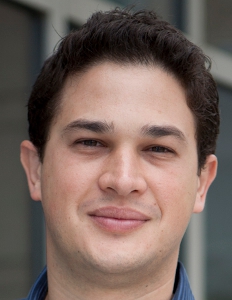
Personal Info
Sports Teams:Coritiba Soccer Team
Favourite Books:
- How To Win Friends And Influence People by Dale Carnegie
Most Influenced By:Bill Gates
Website: http://peixeurbano.com.br
Relevant Link: http://facebook.com/PeixeUrbano
Interview Highlights
This is a condensed, lightly edited transcript of an audio interview. The full audio is available and highly recommended. The interviewee may post clarifications in the comments.
?Adrian Bye: Today I’m here with Emerson from Peixe Urbano. Emerson is actually in Rio de Janeiro in Brazil. His company is one of the most successful companies in all of South America, started with daily deals, but has expanded in a lot of areas. Emerson is going to tell us all about it. So, thank you for joining us. 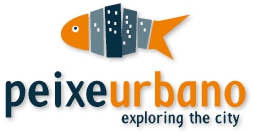
Emerson Andrade:Thank you, very nice talking to you and your audience.
Adrian Bye: Do you want to talk a little bit about your background, where you grew up, where you went to school and what you’ve been doing?
Emerson Andrade: Sure. I was born in Brazil, in the south of Brazil, Curitiba. In 2005 I decided to get my MBA at Stanford in the US, so I moved to the US. When I graduated I took a job at Microsoft in Seattle where I worked for three years before coming back to Brazil, more specifically to Rio. I came back to start Peixe Urbano.
Adrian Bye: Were you there at the very beginning when the site started?
Emerson Andrade: Yes. We were three founders, one of them was my classmate at Stanford and was the first who originally had the idea. He had a friend who was an engineer, Alex, our third co-founder. He called Alex and me and said he was coming back to Brazil to start a company. The focus would be on Local Commerce, but we started with daily deals. That was January 2010, and in March we all came together in Rio and launched the company.
Adrian Bye: I’m curious about the starting. One of your friends had the idea and said come back to Rio and help us. That was basically the catalyst?
Emerson Andrade: Yes, Julio had wanted to come back to Brazil for a long time. He went to college in the US, and after the MBA at Stanford he stayed in the Bay Area working for a startup. Whereas myself, I went to college in Brazil, had worked in Brazil before and when I moved to the US I actually wanted to stay in the US for a while after graduation. I wasn’t really planning on coming back to Brazil. So when he called me it was part of his plan to come to Brazil because he had never worked here and saw a lot of opportunities in Brazil. Brazil was and is growing fast, so he said it’s my time to go to Brazil. He had been studying several ideas for about a year. He called Alex and me and said, look, I’m going back to Brazil and I want to launch a business there. I want you both to come. Our professional experiences were very different. I had a very extensive commercial experience, sales experience, whereas he had worked in marketing a lot, and Alex is an engineer. He said for the daily deal business, that’s exactly what we need. We need someone good at engineering, someone who is going to be able to bring a lot of users to the site (and that was initially his job), and then my job would be to go after the deals, so more like the sales side of it. That was his idea, that’s what he proposed. I initially said, ok, Julio, I have no plans of leaving Microsoft at this point and going back to Brazil, but let’s talk. And in March I spent a month on vacation in Brazil – the month we started to work together and launched the website. 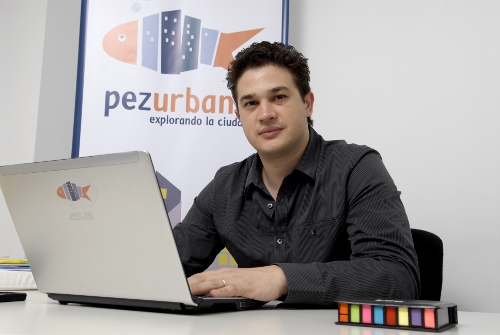
Adrian Bye: I’m interested to hear how you actually started the site. You went back and spent a month in Rio and then the three of you just got some hosting, put the site up?
Emerson Andrade: In fact, Julio and Alex put the website up around January, but on the website there was only a landing page. It only said ‘coming soon: offers in restaurants, hotels, salons, with 50-90% off’. And there was a box where people could leave their email addresses. For about two months, they ran a few Google and Facebook ads, and by March they had been able to register about five thousand users. So when I came to Brazil to spend my vacation we started working on getting the actual offers, visiting merchants, some in Rio, a few in Sao Paulo, and also in Curitiba. In fact, I didn’t come to Rio that month, I had worked with them remotely, that’s how we started.
We had this page where we were able to get 5000 users, and then we got a few merchants who wanted to try what we were about to do. No one was doing it in Brazil. There was no daily deal website in Brazil or anywhere in Latin America, the model was unknown here. And then at the end of March, we launched our first deal in Rio. We had sixty coupons available for that. The next day we were all curious to know if anyone was going to buy anything, if they’d believe in the offer, believe in the model. There were actually four coupons sold already that first morning. And then, after three days, the offer sold all sixty coupons. At this point I had to decide whether I would go back to the US after my vacation. I said I’m going to regret having lost the opportunity to build something big here in Brazil. I’m going to regret it more than anything else, because even if this doesn’t work, I’m still going to learn a lot and have some fun. I cannot be left out of it. So that’s when I went back to the US, quit Microsoft and came back definitely.
Adrian Bye: Can you tell us a little bit more how the first year of the company went? You had your first round where you sold the sixty deals in a couple of days. You mentioned that it was just you three working together for the first year or so. How did that work?
Emerson Andrade: Actually, the first month there were the three of us, plus maybe three or four people. We started off with about 5,000 users and the goal was to close the year of 2010, so that was in nine months, with 300,000 users.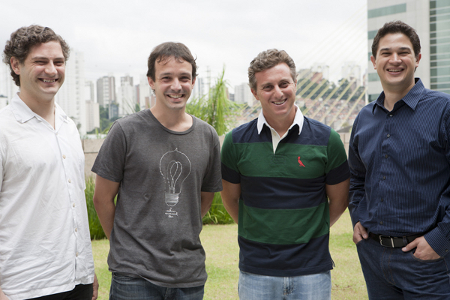
Adrian Bye: That’s a pretty big goal.
Emerson Andrade: Yes, that was a big goal, going from 5,000 to 300,000. We started with the offer in Rio, and we wanted to expand more or less with a basic one city per month approach. The goal was to be in eight to ten cities by the end of 2010. What actually happened was we accelerated our growth tremendously. In August, we decided to increase the rate of opening new cities with offers. We ended 2010 with 5 million users instead of the 300,000, and we were already present in 34 cities by the end of that year. If you think that for each city you open you need to hire salespeople, at least two or three, or in a city like Rio of course many more, then you need to grow internally also. You need to hire copywriters, designers, people to talk to the merchants, to schedule the offers. As you increase the number of cities, you need to have all of the operational side of the business in the office grow at the same pace. In nine months we hired 270 people. We ended the year of 2010 with 270 people in the company.
Adrian Bye: Oh, wow. At what point did you get funding?
Emerson Andrade: I think it was around July. I don’t remember the month exactly, but it was few months after being in. Of course we were talking to investors before that, but actually we were not in need of money in the initial moment. But then by the end of the year we had our first round. We really had to accelerate. In the beginning, we had two VCs, one in Brazil, Monashees, and one in the US, Benchmark Capital. Monashees is in Brazil, and has a lot of connections here in Brazil, and then we had Benchmark with Matt Cohler helping us. He was one of the first employees at Facebook and LinkedIn, with a lot of experience and knowledge. So it was not only important because of the money, but also because of all of the connections and the extensive experience they had with other online businesses, including in the US.
Adrian Bye: Like what sort of things were they able to help you with that were non-monetary? Like outside connections, what kind of things were they able to do?
Emerson Andrade: Actually, connections were very important. For example, we wanted to enter Sao Paulo, and Monashees is in Sao Paulo. These guys know a lot of merchant owners, like owners of restaurants, hotels, so for us it was important to have that connection to be able to quickly get good offers on the website. We knew that what really made the business grow were good offers. So they helped us with that. One of the Monashees investors was friends with an important figure here in Brazil, Luciano Huck. He’s a TV presenter, a celebrity who’s involved with businesses in Brazil as well. So this guy ended up being an investor for us, someone who helped us gain credibility in Brazil. Everybody knows him and he became part of our TV marketing campaign. That helped us a lot in terms of image and strengthening our brand.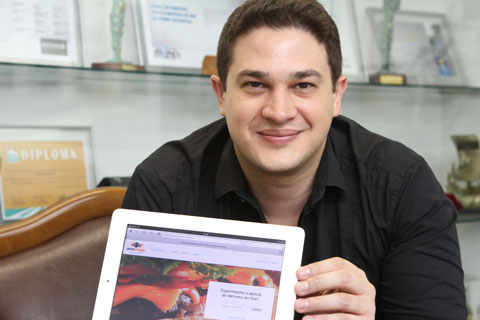
As for Benchmark, it was a lot about brainstorming and deciding whether to go faster or not, really going crazy about opening cities or maybe focusing more on quality and continuing to grow in a pace where we would be able to really control the process. The decision was to run really fast. We were the pioneers, we needed to continue be the leaders in the country. We could not let other websites open in cities where we were not present, we needed to be pioneers in those cities as well. That was part of the conversation with them. This is the type of situation we would discuss with our investors.
Adrian Bye: You’ve obviously been inspired by Groupon, but then you’ve gone in quite a different direction. You have a Brazilian version of OpenTable incorporated, and you’re doing some other stuff as well.
Emerson Andrade: Since the beginning the idea was that we were going to build something that dealt with local commerce, ways for people that are on the web to find things that the city offers offline. Daily deals was the model we decided to begin with because nobody was doing it. It was growing fast and we felt it was a good way to start. People come to our website to learn about new things in their city, and in the case of daily deals, we give them an incentive to get to know a new restaurant or a new salon, because we give the discount. But there are other ways to help people to get to know their cities and to explore more new restaurants or new services in their hometown. That was the idea in the beginning and we thought about executing that for about a year or so before we started doing a few acquisitions to launch new businesses. One of them you just mentioned is reservations, like OpenTable. The other one is online ordering for delivery. Like in the US you have Seamless. In the US, for each one of those segments, you have one strong company. If you think about reservations, you think OpenTable. If you think about deals, you think Groupon. If you think about a guide, you probably think Yelp. So it’s pretty hard for any of those companies to enter into the other segments because there is already a strong player there. In our case, there is no big player in reservations, there is no big player in online ordering, and there is no big player in guides, so we felt that we could build something that could aggregate all of these services for our users.
Adrian Bye: Which is really an incredible model. It would seem you’re building a big tree and that you are able to build a good foundation under the tree as well.
Emerson Andrade: Yes, we think in two ways. For the user we would like to help them to explore the city. So how can you help them explore the city? Well, if you have a good guide, like a Yelp type where people can see pictures of where their friends are going, read reviews and post reviews, that’s one way. The other way is once they decide where they want to go, they can make a reservation. Or maybe if the place offers delivery, they can order immediately online. Or maybe the place has a promotion that day and they can buy the offer on our website. So it works as a platform where you give several options to the user so they can explore the city. That’s looking at it from the user side.
Then we have the merchant side. When we think about the merchant, we want to offer them several ways to help them grow and manage their businesses. With daily deals they can attract maybe a hundred or a thousand new customers that they can then serve well and gain their loyalty. In the case of delivery, we have several merchants who say that before they had many more people taking phone calls, processing orders and getting credit card numbers over the phone, and now orders arrive through the internet, error-free and already paid for. So we help them manage and expedite their operations in addition to getting new customers.
We want to be the destination for people when they are going to go out, try new things, reserve, order, experiment, read reviews or post pictures of dishes that they like in restaurants. That’s the idea. We have about 20 million users, and we have about 25 to 30 thousand merchants with whom we’ve had a business relationship in the last two, three years.
I think for Brazil it’s an interesting story. There are not so many startups that have grown this fast and have been able to build such a strong brand in just a few years. I always like to talk about that because we’ve seen that other people here in Brazil have been inspired by that and we’re seeing many new companies being launched. Sometimes they mention to us that what we did was something that has motivated them to also try to start a business. It’s great that we can help and show people that it’s possible. It’s risky, you’re going to work hard, make mistakes, but still it’s possible to build a large business. So I’m proud of all we’ve been able to achieve so far with Peixe Urbano.
Adrian Bye: Yes, three years ago you were just three guys talking about, and now you’ve got hundreds of employees, so that’s pretty incredible. Well, Emerson, thank you very much for the interview.
Emerson Andrade: Thank you, Adrian. Very nice to talk to you.









